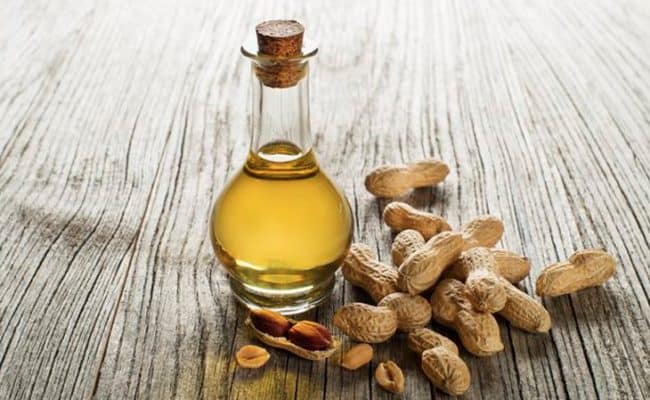
The inflammatory process in the body is meant to protect us from foreign harmful invaders like bacteria and viruses. However, chronic inflammation in the body is associated with obesity and many chronic diseases including heart disease, diabetes, arthritis and cancer.
According to Harvard Health (1), one of the best ways to fight inflammation in the body is through diet.
What you eat and drink can affect the inflammation markers in your body. Some foods have natural compounds in them that have a natural anti-inflammatory effect in the body.
Fruits, vegetables, nuts, omega 3 sources and olive oil can all help lower inflammation in the body.
On the other hand, foods that can increase inflammation in the body include: foods high in added sugar, refined carbohydrates, fried foods, processed red meats and hydrogenated oils.
Not surprisingly, most of these pro-inflammatory foods are considered empty calorie foods because they provide little if any nutritional benefit.
Eating a diet based on anti-inflammatory foods can offer many health benefits including lowering risk for chronic diseases associated with inflammation.
Fruits and vegetables: Variety is key
Fruits and vegetables are packed with antioxidants, vitamins, minerals and fiber. It’s not surprising they are considered anti-inflammatory.
Vibrant red, blue and purple berries are high in anthocyanins, orange, yellow and orange fruits and vegetables are rich in lutein and beta carotene.
Tomatoes are a rich source of lycopene, and there are many more antioxidants found in all colors of fruits and vegetables.
The greater variety of fruits and vegetables, the more anti-inflammatory protection you can get.
In fact, a 2011 study (2) concluded a greater variety of fruits and vegetables, not necessarily greater quantity, was important for lowering inflammation in over 1,200 participants in this study.
Increasing the amount of fruits and vegetables is beneficial for many reasons, but if you want an added bonus of increased anti-inflammation benefit, increase the variety of fruits and vegetables you eat as well.
Olive oil and nuts
The Mediterranean diet is based on eating a diet high in fruits, vegetables, legumes, whole grains, nuts and olive oil. It limits intake of red meats and sweets.
Eating like the Mediterranean diet is associated with many health benefits including lowering risk for heart disease, premature death and stroke (3).
A Mediterranean diet is also high in antioxidants and may help lower inflammatory markers in the body.
A 2008 study (4) involving over 700 adults at risk for cardiovascular disease concluded people who had the highest intake of olive oil and nuts had the lowest levels of several inflammatory markers in the blood.
This suggests eating a healthy diet with a higher intake of nuts and olive oil could help lower inflammatory markers in the body.
Omega 3 sources
Omega 3’s are an essential fatty acid that are anti-inflammatory. Some studies have shown omega 3 supplements can help reduce symptoms associated with rheumatoid arthritis.
Getting adequate amounts of omega 3’s, balanced by a healthy intake of omega 6’s, can be beneficial for lowering chronic inflammation in the body.
Omega’s can help with lowering risk for heart disease, cancer, arthritis and play an important role in brain function (5).
Most people eating a typical Western style diet get too much omega 6 fatty acid, which is pro-inflammatory, and not enough omega 3 fatty acid.
Commonly used vegetable oils are a rich source of omega 6’s and tend to be wide spread in the food system.
If you want to get more omega 3’s in your diet, following a Mediterranean eating pattern can help you get more omega 3’s in your diet. Incorporating fresh caught fish high in omega 3’s such as salmon, tuna and halibut is also a rich source of omega 3’s.
Other sources of omega 3’s include walnuts, krill oil, flaxseed, chia seed, hemp seed and some enriched eggs.
Probiotics
Foods with probiotics, or known as good bacteria, may also help lower inflammation in the body. This could be especially beneficial for people with inflammatory conditions of the digestive system like colitis (6). Some research studies have shown taking probiotics had lower levels of inflammation compared to people who weren’t getting probiotics.
There are many probiotic supplements, but probiotics are naturally found in fermented dairy like kefir, yogurt and fermented vegetables. A fermented beverage, kombacha, is also a source of probiotics.
Pro-inflammatory foods
Eating a diet high in foods that are calorie dense, like fried foods and foods high in sugar, can promote inflammation. Obesity is also linked with inflammation because fat cells release inflammatory markers into the body.
Obese people have higher levels of inflammation compared to lean people, and these higher levels of inflammation from obesity can also increase risk for type 2 diabetes (7). Weight loss is associated with lowering inflammation markers in the body.
Processed red meat may increase inflammation in the body along with fried foods and hydrogenated oils. The combination of high fat foods, like fried foods, with high sugar foods can be a double impact for promoting inflammation in the body.
Conclusion
The benefits of eating a diet high in anti-inflammatory foods are important because they can lower your risk for chronic diseases like heart disease, cancer, stroke, diabetes and arthritis. In fact, diet has a strong impact on inflammation levels in the body.
If you eat a diet high in processed foods, sugary foods, beverages and fried foods, you are promoting inflammation with your diet.
On the other hand, eating a diet similar to the Mediterranean diet is associated with lowering inflammatory markers in the body.
Some research also suggests eating a wide variety of fruits and vegetables, not just quantity, can also provide benefit for lowering inflammation.
Nuts, olive oil and omega 3 sources are important dietary sources for lowering inflammation.
Research with probiotics is continuing to find health benefits associated with getting enough of these good bacteria. Probiotics can also help lower inflammation, which is also helpful for inflammatory diseases of the digestive system like colitis.










